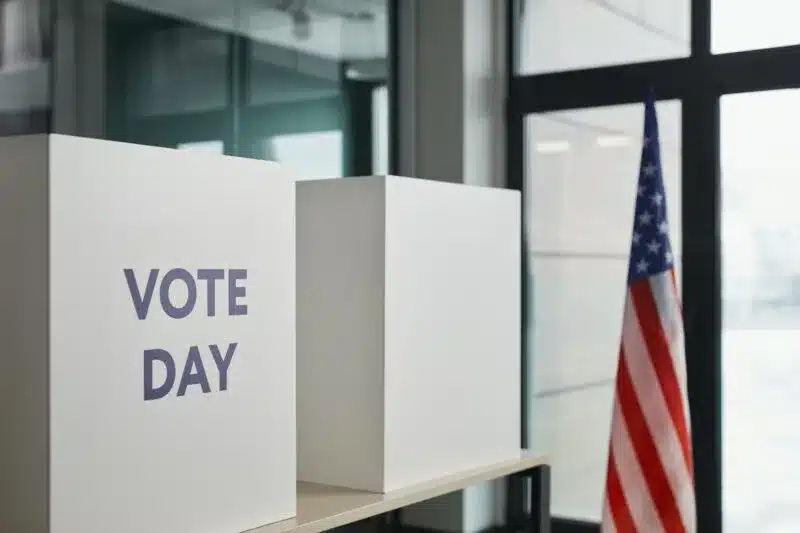With less than two weeks to the U.S. elections, betting agencies are increasingly wagering on a Trump victory. This advantage has significantly increased in the recent weeks. Given the significant differences between the Republican and Democratic parties and the tumultuous nature of American politics, financial markets are likely to be highly nervous.
A win for Donald Trump could mean a radical change of direction, especially if the Republicans dominate the Senate and the House of Representatives. Harris is likely to want to introduce some changes but her policy will not diverge significantly from the current one led by Joe Biden.
There are four main areas of Trump’s policy which could lead to significant changes on the currency market and in the valuation of the U.S. dollar. These include tariffs, taxes, immigration policy, and the degree of independence of the Federal Reserve.
Imposing a 10% tariff on all goods entering the United States and 60% or more on products from China would increase the price level, causing additional inflationary effects. American goods will become more expensive. The Federal Reserve could prevent inflation by responding appropriately, which would be beneficial for the USD. Under normal circumstances this might be the case, but with Trump, it is uncertain whether the ex-president will not pressure the Federal Reserve not to apply restrictive monetary policy. There have been proposals from the former president in the past, in which the “head” of state has a say in the interest rate. The Republican candidate would find it difficult to accept that monetary actions to some extent have a destructive effect on the positive economic effects he intends to achieve through his tariff and tax policy. However, the loss of complete independence by the Federal Reserve is a far-reaching speculation that is currently less likely. If the Federal Reserve can operate entirely apolitically, this will be good for the USD, if there are potential tensions between the White House and the central bank, the USD may suffer in the long term.
Trump’s goal is to make the TCJA law permanent. The former president plans to offer several reliefs for companies. Taxes on social benefits are to be abolished. Meanwhile, the corporate tax is to be reduced to 15%. Calculations from Axios and the Penn Wharton Budget Model indicate that Republican actions in this area could significantly deepen the budget deficit in the coming years. Both tax and tariff policies will likely lead to a “positive demand shock.”
A Trump victory would also mean tightening immigration policy. Deportations are possible, which, from an economic perspective, could mean that the U.S. will gradually lack unskilled labor. This problem may mainly affect agriculture, but also other sectors to a lesser extent. In the medium term, the implications of these actions will be higher wages, which in turn will translate into inflation. At the same time, Trump wants to increase the production of oil and gas to reduce its prices and make the U.S. even more energy independent. Some environmental and energy deregulations are therefore possible.
The initial reaction on the dollar may not be a reliable indicator of where the U.S. currency will head in the medium and long term. There are many variables and only time will tell which of Trump’s promises will be implemented and which were just empty pledges. At the moment, in the short term, there is a higher probability that if Trump indeed wins, the USD could strengthen. However, the scale of this reaction will depend on how much the “greenback” appreciates over the next two weeks. In other words, to what extent the market will discount the election results.
Łukasz Zembik, Oanda TMS Brokers
Source: https://ceo.com.pl/wzrost-inflacji-i-presja-na-fed-jak-wygrana-trumpa-wplynie-na-amerykanska-gospodarke-77668
